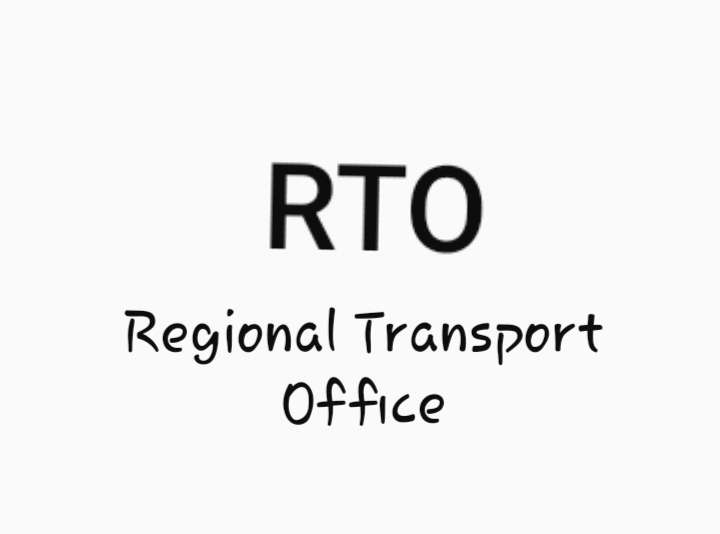RTO, or Regional Transport Office, is a government agency responsible for vehicle registration, licensing, and enforcement of road transport laws. It issues driving licenses, collects road taxes, conducts vehicle inspections, and maintains records related to vehicles and drivers. RTOs play a crucial role in regulating and managing road transportation within their jurisdiction.
What Is RTO Full Form?



RTO stands for Regional Transport Office or Road Transport Office. It is a government agency responsible for regulating the road transport sector in India. It also issues permits and licenses to vehicles and drivers and registers vehicles. The full form of RTO is the Road Transport Office. The role of the Road Transport Office is to ensure the safe and efficient movement of traffic on Indian roads. It does this by issuing permits and licenses, registering vehicles, and conducting driving tests.
RTOs are responsible for a wide range of tasks, including:
- Issuing driving licenses
- Registering vehicles
- Conducting driving tests
- Collecting road tax
- Enforcing traffic laws
- Investigating road accidents
- Promoting road safety
RTOs are located in every state and union territory in India. They are typically divided into sub-offices, which are responsible for a smaller area. If you need to contact an RTO, you can find their contact information on the website of the Ministry of Road Transport and Highways.
RTO accountability
RTO accountability refers to the responsibility of Regional Transport Offices (RTOs) to ensure that they are meeting their statutory obligations and providing quality services to the public. RTO accountability is important for a number of reasons, including:
- To ensure that RTO services are efficient and effective
- To protect the public from corruption and abuse of power
- To promote transparency and public trust in the RTO system
There are a number of ways to improve RTO accountability, including:
- Transparency: RTOs should be transparent about their operations and decision-making processes. This includes making information about RTO services, fees, and procedures easily accessible to the public.
- Accountability mechanisms: RTOs should have clear accountability mechanisms in place to ensure that they are held to account for their performance. This could include things like independent oversight bodies, whistleblowing mechanisms, and public feedback mechanisms.
- Training and capacity building: RTO staff should be properly trained and equipped to deliver quality services. This includes training on the relevant laws and regulations, as well as customer service skills.
Improving RTO accountability is an important step towards ensuring that RTO services are efficient, effective, and transparent. It is also essential for promoting public trust in the RTO system.
Application Form And Fee
Service | Application Form | Fee |
|---|---|---|
| Driving License (New) | Form 2 | INR 500 |
| Driving License (Renewal) | Form 3 | INR 300 |
| Vehicle Registration | Form 20 | INR 400 |
| Vehicle Transfer | Form 25 | INR 200 |
| Vehicle Insurance (Renewal) | Form 39 | INR 200 |
When you apply for an RTO service, you will need to provide the following documents:
- Your original and photocopies of your identity proof (such as passport, PAN card, Aadhaar card)
- Your original and photocopies of your address proof (such as voter ID card, ration card, electricity bill)
- Your photograph
The processing time for an RTO service varies depending on the service you are applying for. However, it typically takes a few weeks to a few months to process an application.
How to Apply for RTO
Step | Action |
|---|---|
| 1 | Check the eligibility criteria. |
| 2 | Gather the required documents. |
| 3 | Download the application form. |
| 4 | Fill out the application form. |
| 5 | Submit the application form. |
| 6 | Pay the application fee. |
| 7 | Wait for the processing of your application. |
| 8 | Collect your documents. |
Facts About RTO
Here are some facts about RTO:
- Full Form: RTO stands for Regional Transport Office.
- Parent Agency: The Ministry of Road Transport and Highways.
- Location: RTOs are located in every state and union territory in India.
- Responsibilities: RTOs are responsible for a wide range of tasks, including issuing driving licenses, registering vehicles, collecting road tax, enforcing traffic laws, investigating road accidents, and promoting road safety.
- Challenges: RTOs face a number of challenges, including corruption, lack of resources, and outdated systems.
- Improvements: There have been a number of improvements in the RTO system in recent years, including the introduction of online services and the use of technology to improve efficiency.
Frequently Asked Question
The full form of RTO is Regional Transport Office.
RTOs are responsible for a wide range of tasks related to road transport, including issuing driving licenses, registering vehicles, collecting road tax, enforcing traffic laws, investigating road accidents, and promoting road safety.
RTOs are located in every state and union territory in India.
You can contact an RTO by visiting their website, calling their phone number, or visiting their office in person.
Conclusion
Regional Transport Offices (RTOs) are an important part of the road transport system in India. They are responsible for a wide range of tasks, including issuing driving licenses, registering vehicles, collecting road tax, enforcing traffic laws, investigating road accidents, and promoting road safety.






